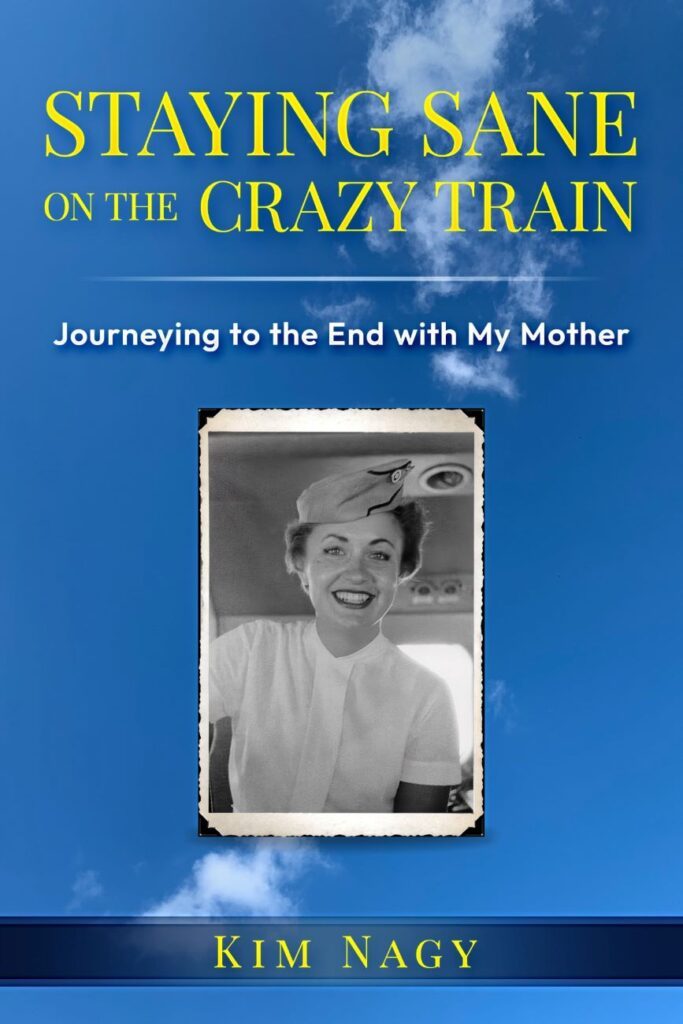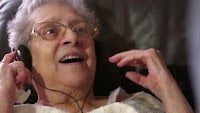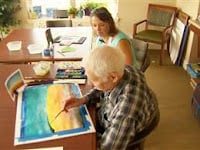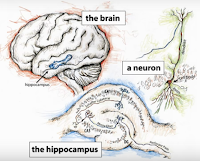
Over 12 million people in the US provide care to parents and family members living with Alzheimer’s and other progressive memory disorders.
It’s a familiar story, and an increasingly common one: A parent ages. Adult children step in, then step up. The situation grows challenging when the parent lives with dementia. Add to this, a post-retirement hoarding disorder and caregiving grows exponentially harder.
What if this responsibility falls upon you? You step up as a reluctant caregiver. Is it okay to say you wish you didn’t have to experience your only family member’s steep decline, especially when it becomes a multi-year odyssey?
Given the choice, would you rather lose a coveted executive position or your only family member to dementia? What if you lost both?
Staying Sane on the Crazy Train is a human story of caregiving told with compassion, insight, and humor about a mother who goes from glamorous stewardess to eccentric hoarder.
As a caregiver and daughter, I was blown off-course. I was thrown into a bizarre reality where I didn’t know the rules. How do I cope with a chaotic, ever-changing situation involving personality changes, aggression, anxiety, and intense mood swings? How do I build a network of helpers where none existed? How do I hold onto my own life when I nearly become undone? [TCV: For more on feeling “undone” read about Caregiver Dementia.]
Self-Growth is a Choice on the Caregiving Journey
This is my journey caring for my mother—an erratic, and at times, infuriating woman. I embark on an ongoing quest for inner growth during what may be the most challenging period of my life. It’s a roller coaster ride, both excruciating and uplifting.
We can choose—give in to the negativity or transform ourselves as we step up to the challenge. We show up when the situation is miserable. We repurpose the negativity and transform the grief we feel as we face the worst aspects of ourselves in a situation we’d rather not be in.
We realize caregiving for a family member can be a unique opportunity to truly transform and heal the past in unimaginable ways. While we can’t bring back our family member’s memory or personality, we can choose to change how we reflect on the environment we were raised in. We can choose how to reframe the relationship of our youth. In doing this difficult work of self-growth we can create a different outcome.
The turning point in this caregiving story
Inspired by both nature and my love of photography, I learned to make peace with my mother’s situation by leaning into the natural world. Viewing wildlife through a lens showed me what’s right with the world and confirmed that photography, like life, is all about focus. Whereas, before photography was a serious hobby, the caregiving experience elevated wildlife photography as a lifeline to healing. No matter how crazy things seemed, the natural world always made perfect sense.
Letting Go
What we focus on increases, and the more we can focus on what’s right with the world, the clearer everything else becomes. And then you set yourself free.

Ultimately, I am forced to let go. Caregiving at its most challenging is like a car skidding. Although, counterintuitive, the best way to manage a skid is to take your foot off the brake.
Kim Nagy has made the natural world both her profession and her hobby. Her journey into wildlife photography provided solace and a sense of clarity during an arduous caregiving experience, while writing Staying Sane on the Crazy Train: Journeying to the End with My Mother. Kim resides in New England.
[TCV Edited]
For more on Caregiver Dementia: Caregiver Humor: A Case of Caregiver Dementia
Disclaimer: This story is auto-aggregated by a computer program and has not been created or edited by healthlydays.
Publisher: Source link











